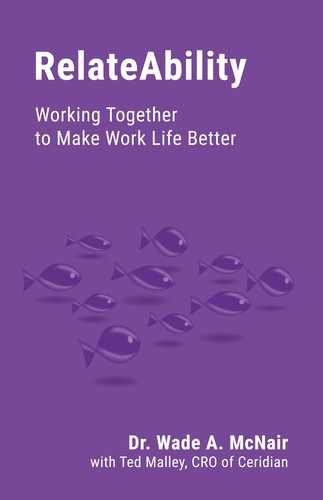Supporting Research
RelateAbility/Emotional Intelligence
Barrick, M. R., Stewart, G. L., Neubert, M. J., & Mount, M. K. (1998). Relating member ability and personality to work-team processes and team effectiveness. Journal of Applied Psychology, 83(3), 377.
Bradberry, T., & Greaves, J. (2009). Emotional intelligence 2.0. San Diego: TalentSmart.
Goleman, D. (1995). Emotional Intelligence: Why It Can Matter More Than IQ. New York: Bantam Books.
Goleman, D. (1998). Working with Emotional Intelligence. New York: Bantam Books.
Jordan, P. J., Ashkanasy, N. M., Härtel, C. E., & Hooper, G. S. (2002). Workgroup Emotional Intelligence: Scale development and Relationship to Team Process Effectiveness and Goal Focus. Human Resource Management Review, 12(2), 195-214.
Melita Prati, L., Douglas, C., Ferris, G. R., Ammeter, A. P., & Buckley, M. R. (2003). Emotional Intelligence, Leadership Effectiveness, and Team Outcomes. The International Journal of Organizational Analysis, 11(1), 21-40.
Offermann, L. R., Bailey, J. R., Vasilopoulos, N. L., Seal, C., & Sass, M. (2004). The Relative Contribution of Emotional Competence and Cognitive Ability to Individual and Team Performance. Human Performance, 17(2), 219-243.
Stubbs Koman, E., & Wolff, S. B. (2008). Emotional Intelligence Competencies in the Team and Team Leader: A Multi-Level Examination of the Impact of Emotional Intelligence on Team Performance. Journal of Management Development, 27(1), 55-75.
Rapisarda, B. A. (2002). The Impact of Emotional Intelligence on Work Team Cohesiveness and Performance. The International Journal of Organizational Analysis, 10(4), 363-379.
